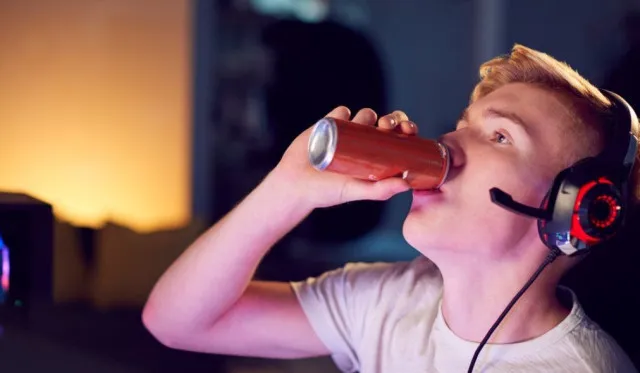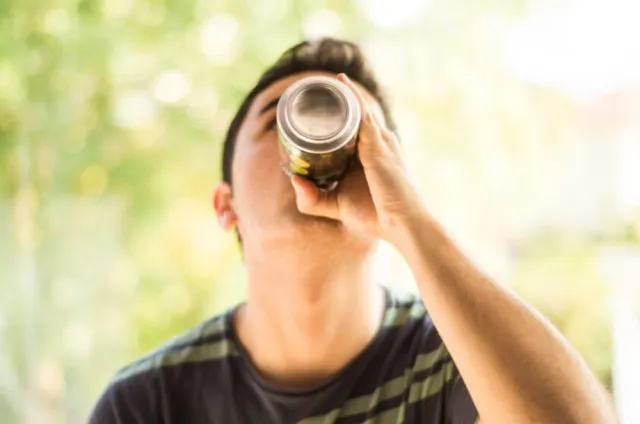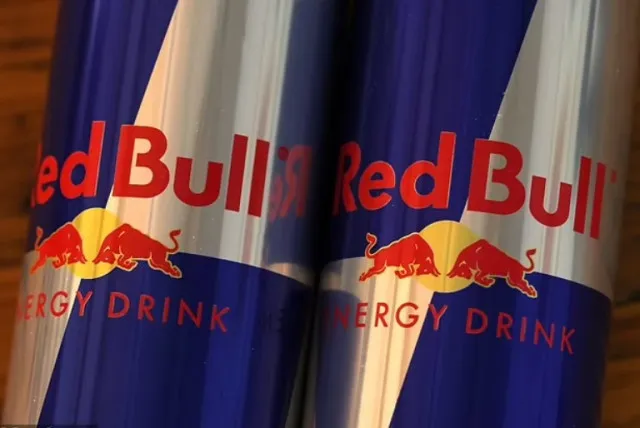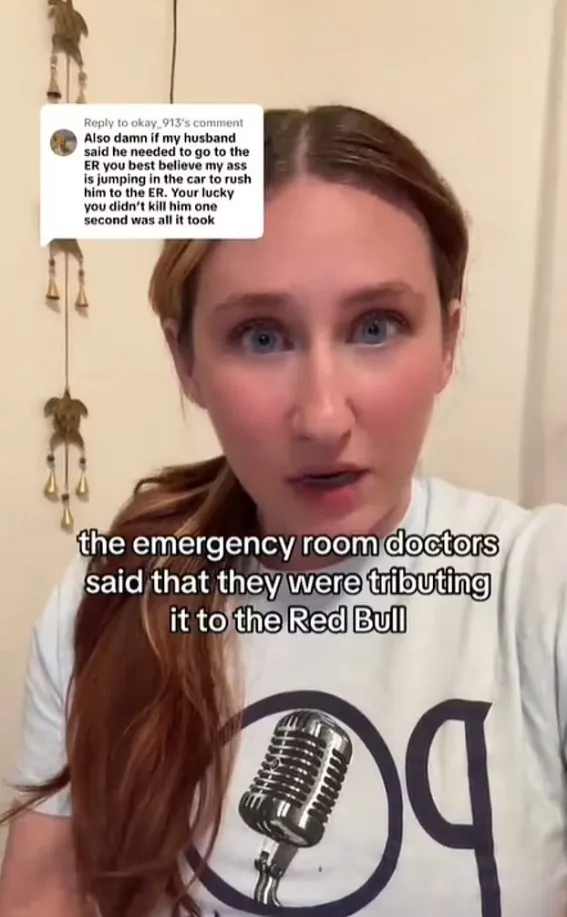A mother of three has issued a dire warning after her husband experienced a life-threatening cardiac arrest, a condition that doctors linked to his daily consumption of energy drinks. This shocking incident highlights the severe health risks associated with the excessive intake of these popular beverages.
The Shreve Family’s Harrowing Ordeal

Meagan Shreve, a store manager from Colorado, shared the terrifying story of how her husband, Aaron Shreve, suffered a cardiac arrest that nearly claimed his life. Aaron, who had been consuming two to three cans of energy drinks daily, began feeling unwell in January. His symptoms included a racing heart and numbness in his extremities—alarming signs that something was seriously wrong.
The Emergency Unfolds
Aaron’s condition rapidly deteriorated. After experiencing these symptoms, he was rushed to the hospital. However, shortly after arriving, Aaron collapsed, leading to a frantic effort by medical staff to save his life. The situation was so critical that doctors had to perform chest compressions with such force that Aaron sustained broken ribs.
Meagan recalls the horrifying moment: “I watched this 105-pound [47-kilogram] woman drag my husband out of a chair and start chest compressions so hard that she broke his ribs.” This traumatic experience underscores the seriousness of the situation and the life-threatening potential of energy drink consumption.
Energy Drinks and Their Health Risks
Energy drinks are notorious for their high caffeine content, which can have significant effects on heart health. While a typical cup of coffee contains around 100 mg of caffeine, a single can of Red Bull, for example, contains 80 mg. Many energy drinks also include additional stimulants like taurine, which can further increase heart rate and blood pressure.
For individuals with certain pre-existing heart conditions, such as long QT syndrome, even small amounts of caffeine can be extremely dangerous. In Aaron’s case, the doctors determined that his cardiac arrest was caused by dehydration, exacerbated by his high intake of energy drinks. This tragic event highlights the risks that energy drinks pose, particularly for those with underlying health issues.
The Broader Impact of Energy Drink Consumption

The Shreve family’s story is not an isolated incident. Studies have shown a correlation between energy drink consumption and heart problems, including irregular heartbeats and cardiac arrest. Research from the Mayo Clinic found that out of 144 cardiac arrest cases studied, seven patients had consumed energy drinks shortly before their incidents.
This data points to a worrying trend: energy drinks, which are often marketed as harmless pick-me-ups, can have devastating effects on heart health. The combination of high caffeine levels and other stimulants creates a potent mix that can be especially harmful to individuals with undiagnosed or underlying heart conditions.
Expert Recommendations for Energy Drink Consumption

Health experts strongly advise caution when it comes to energy drink consumption. The Food Standards Agency recommends that adults limit their caffeine intake to no more than 400 mg per day. However, individuals with rare heart conditions like long QT syndrome should be particularly careful, as even low doses of caffeine can trigger serious health issues.
Meagan Shreve’s story serves as a poignant reminder of the dangers associated with energy drinks. While these beverages are popular for their ability to boost energy and alertness, their potential to cause harm should not be underestimated. It is crucial to approach energy drinks with caution and to be aware of the risks they pose, particularly for those with existing health concerns.
The Importance of Moderation and Awareness

The tragic experience of the Shreve family underscores the importance of moderation and awareness when it comes to energy drink consumption. While these drinks may offer a temporary boost, the long-term health risks can be severe. It is vital for consumers to understand the potential dangers and to make informed choices about their intake of energy drinks.
Health professionals recommend monitoring caffeine consumption carefully, especially for individuals with heart conditions or those who consume other sources of caffeine, such as coffee or tea. Being aware of the signs of caffeine overconsumption—such as rapid heartbeat, dizziness, and numbness—is also crucial in preventing serious health complications.
A Mother’s Warning to Others

Meagan Shreve has bravely shared her family’s ordeal to raise awareness about the dangers of energy drinks. Her hope is that by sharing Aaron’s story, others may be spared the trauma and heartbreak that her family has endured. The Shreve family’s experience serves as a powerful reminder of the importance of taking energy drink warnings seriously and recognizing that these beverages are not without risks.
While energy drinks are widely consumed and easily accessible, their potential to cause serious health issues should not be ignored. The Shreve family’s story is a stark warning to all: think twice before reaching for that next can, and consider the possible consequences of consuming these potent beverages. In a world where energy drinks are often marketed as harmless or even beneficial, it’s crucial to remain informed and cautious. Your health—and life—could depend on it.


